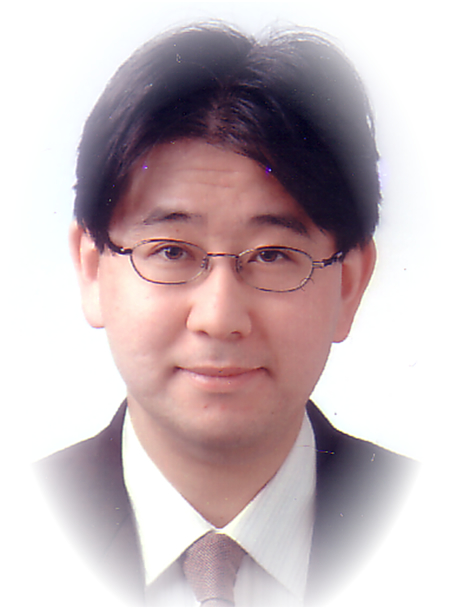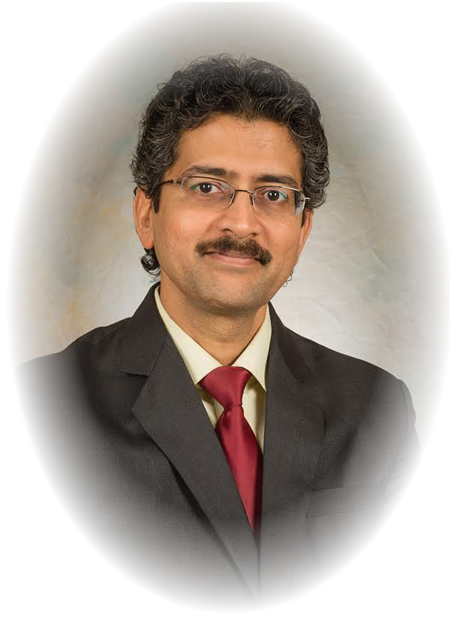
 Professor Muruganant is a Commonwealth fellow and a doctorate from University of Cambridge, UK. Having worked with some of the most prestigious research institutes across the globe, his contributions in the field of structure-property correlation, understanding of the components of high temperature creep strength of ferritic steels have benefitted the scientific community. His contributions have benefitted corporate Jaints like ABB Sweden, Siemens Westinghouse corporation USA, ESAB Sweden and the like. Prof. Muruganant has a great passion for research, academia and technology. His contributions have been recognized through various publications in peer-reviewed Journals, invitation for keynote lectures in premier conferences across the globe. His models for structure-property correlation were the first to world to predict properties of steel as required by commercial standards. He has implemented modules through computational methods that has saved several million dollars in steel plants. He is the founder Chairman of the major International Conferences series in Materials like FiMPART (Frontiers in Materials Processing, Applications, Research and Technology) and FiNSTA (Frontiers in Nanoscience, Technology and Applications). He is currently serving as the Ministry of Steel Chair Professor having selected by the Ministry of Steel and Mines, Govt. of India as one of the Chair Professors and contributes from PSG College of Technology a 100 year old institute whose Design data book is used by all engineering fabricators in India and elsewhere. It is worthy to note that he is the youngest Chair Professors in the history of this Chair position - a befitting reward for his sustained and positive contribution to education, research and industries alike. He is also the director of the Steel Academics, Research and Consultancy Center (SARCC). He is an expert consultant selected by Intota experts USA. He is the Editor in Chief of Steel communications.
Professor Muruganant is a Commonwealth fellow and a doctorate from University of Cambridge, UK. Having worked with some of the most prestigious research institutes across the globe, his contributions in the field of structure-property correlation, understanding of the components of high temperature creep strength of ferritic steels have benefitted the scientific community. His contributions have benefitted corporate Jaints like ABB Sweden, Siemens Westinghouse corporation USA, ESAB Sweden and the like. Prof. Muruganant has a great passion for research, academia and technology. His contributions have been recognized through various publications in peer-reviewed Journals, invitation for keynote lectures in premier conferences across the globe. His models for structure-property correlation were the first to world to predict properties of steel as required by commercial standards. He has implemented modules through computational methods that has saved several million dollars in steel plants. He is the founder Chairman of the major International Conferences series in Materials like FiMPART (Frontiers in Materials Processing, Applications, Research and Technology) and FiNSTA (Frontiers in Nanoscience, Technology and Applications). He is currently serving as the Ministry of Steel Chair Professor having selected by the Ministry of Steel and Mines, Govt. of India as one of the Chair Professors and contributes from PSG College of Technology a 100 year old institute whose Design data book is used by all engineering fabricators in India and elsewhere. It is worthy to note that he is the youngest Chair Professors in the history of this Chair position - a befitting reward for his sustained and positive contribution to education, research and industries alike. He is also the director of the Steel Academics, Research and Consultancy Center (SARCC). He is an expert consultant selected by Intota experts USA. He is the Editor in Chief of Steel communications.
 Dr Dominique Bernard is the research director and scientific leader at ICMCB-CNRS. Dr Bernard research interests includes X-ray computed micro tomography (XCMT) to characterise 3D microstructure of multi materials, to understand and quantify their modifications in time and to perform realistic numerical simulations of the coupled phenomenon occurring during those modifications. The group that he heads covers a domain going from data acquisition (using synchrotron or micro focus laboratory micro tomograph), data treatment (artefacts correction, filtering, 3D reconstruction, 3D registration) and data analysis (3D visualisation, 3D image analysis) to numerical modelling and numerical models development (change of scale methods, effective properties calculation, direct numerical modelling at the pore scale). Through a large number of industrial and academic projects, a great variety of materials have been studied: polymer foams under dynamic loading, aluminium alloys during solidification, ceramics during sintering, concrete during leaching, carbonate rocks during reactive percolation, ferroelectric composites.
Dr Dominique Bernard is the research director and scientific leader at ICMCB-CNRS. Dr Bernard research interests includes X-ray computed micro tomography (XCMT) to characterise 3D microstructure of multi materials, to understand and quantify their modifications in time and to perform realistic numerical simulations of the coupled phenomenon occurring during those modifications. The group that he heads covers a domain going from data acquisition (using synchrotron or micro focus laboratory micro tomograph), data treatment (artefacts correction, filtering, 3D reconstruction, 3D registration) and data analysis (3D visualisation, 3D image analysis) to numerical modelling and numerical models development (change of scale methods, effective properties calculation, direct numerical modelling at the pore scale). Through a large number of industrial and academic projects, a great variety of materials have been studied: polymer foams under dynamic loading, aluminium alloys during solidification, ceramics during sintering, concrete during leaching, carbonate rocks during reactive percolation, ferroelectric composites.
Research at ICMCB mainly concerns chemistry, physico-chemistry and physics of materials. The objective is to conceive, prepare, process and characterize materials in order to discover, control and optimize specific functionalities linked to the intrinsic qualities of the materials but also to surfaces and interfaces attributes. All scales from molecules, nano materials and mono crystals to massive multi-materials are considered. At ICMCB a large variety of physical, physico-chemical and chemical techniques of characterization are operational. Modelling, numerical simulation and visualisation are taking an increasing place in the research projects in close relationship with experiments. ICMCB is a multidisciplinary institute having strong partnership with physicists, geologists, biochemists and physicians in France and abroad.
 Noriyoshi MATSUMI received a B. S. degree from Kyoto University in 1995 and obtained Dr. of engineering in polymer chemistry from Graduate School of Engineering, Kyoto University in 2000 under the guidance by Professor Yoshiki Chujo. During 1999-2000, he received a Japan Society for Promotion of Science (JSPS) fellowship. Then he became assistant professor at Tokyo University of Agriculture and Technology, working with Professor Hiroyuki Ohno. In 2006, he joined the group of Professor Keigo Aoi at Graduate School of Bioagricultural Sciences, Nagoya University as associate professor. From 2010, he has been Professor at School of Materials Science, Japan Advanced Institute of Science and Technology (JAIST). His current research interest is design of organoboron functional materials, polymer electrolytes, ionic liquids, conjugated polymers and their applications for energy devices.
Noriyoshi MATSUMI received a B. S. degree from Kyoto University in 1995 and obtained Dr. of engineering in polymer chemistry from Graduate School of Engineering, Kyoto University in 2000 under the guidance by Professor Yoshiki Chujo. During 1999-2000, he received a Japan Society for Promotion of Science (JSPS) fellowship. Then he became assistant professor at Tokyo University of Agriculture and Technology, working with Professor Hiroyuki Ohno. In 2006, he joined the group of Professor Keigo Aoi at Graduate School of Bioagricultural Sciences, Nagoya University as associate professor. From 2010, he has been Professor at School of Materials Science, Japan Advanced Institute of Science and Technology (JAIST). His current research interest is design of organoboron functional materials, polymer electrolytes, ionic liquids, conjugated polymers and their applications for energy devices.
 Apparao M. Rao is R. A. Bowen Professor of Physics at Clemson University and Director of Clemson Nanomaterials Center. He pioneered synthesis methods for carbon nanotubes, thermoelectric and oxide nanomaterials, and has been instrumental in advancing Raman spectroscopic characterization of fullerene polymers and carbon nanotubes. He is a recipient of the 2014 SC Governor's award for excellence in research, and is a Fellow of the American Physical Society and the American Association for Advancement of Science. His research interests include defect-induced phenomenon at the nanoscale with a view towards nanomaterial-based device applications in energy generation, storage, sensors, and nanomedicine.
Apparao M. Rao is R. A. Bowen Professor of Physics at Clemson University and Director of Clemson Nanomaterials Center. He pioneered synthesis methods for carbon nanotubes, thermoelectric and oxide nanomaterials, and has been instrumental in advancing Raman spectroscopic characterization of fullerene polymers and carbon nanotubes. He is a recipient of the 2014 SC Governor's award for excellence in research, and is a Fellow of the American Physical Society and the American Association for Advancement of Science. His research interests include defect-induced phenomenon at the nanoscale with a view towards nanomaterial-based device applications in energy generation, storage, sensors, and nanomedicine.


 Professor Muruganant is a Commonwealth fellow and a doctorate from University of Cambridge, UK. Having worked with some of the most prestigious research institutes across the globe, his contributions in the field of structure-property correlation, understanding of the components of high temperature creep strength of ferritic steels have benefitted the scientific community. His contributions have benefitted corporate Jaints like ABB Sweden, Siemens Westinghouse corporation USA, ESAB Sweden and the like. Prof. Muruganant has a great passion for research, academia and technology. His contributions have been recognized through various publications in peer-reviewed Journals, invitation for keynote lectures in premier conferences across the globe. His models for structure-property correlation were the first to world to predict properties of steel as required by commercial standards. He has implemented modules through computational methods that has saved several million dollars in steel plants. He is the founder Chairman of the major International Conferences series in Materials like FiMPART (Frontiers in Materials Processing, Applications, Research and Technology) and FiNSTA (Frontiers in Nanoscience, Technology and Applications). He is currently serving as the Ministry of Steel Chair Professor having selected by the Ministry of Steel and Mines, Govt. of India as one of the Chair Professors and contributes from PSG College of Technology a 100 year old institute whose Design data book is used by all engineering fabricators in India and elsewhere. It is worthy to note that he is the youngest Chair Professors in the history of this Chair position - a befitting reward for his sustained and positive contribution to education, research and industries alike. He is also the director of the Steel Academics, Research and Consultancy Center (SARCC). He is an expert consultant selected by Intota experts USA. He is the Editor in Chief of Steel communications.
Professor Muruganant is a Commonwealth fellow and a doctorate from University of Cambridge, UK. Having worked with some of the most prestigious research institutes across the globe, his contributions in the field of structure-property correlation, understanding of the components of high temperature creep strength of ferritic steels have benefitted the scientific community. His contributions have benefitted corporate Jaints like ABB Sweden, Siemens Westinghouse corporation USA, ESAB Sweden and the like. Prof. Muruganant has a great passion for research, academia and technology. His contributions have been recognized through various publications in peer-reviewed Journals, invitation for keynote lectures in premier conferences across the globe. His models for structure-property correlation were the first to world to predict properties of steel as required by commercial standards. He has implemented modules through computational methods that has saved several million dollars in steel plants. He is the founder Chairman of the major International Conferences series in Materials like FiMPART (Frontiers in Materials Processing, Applications, Research and Technology) and FiNSTA (Frontiers in Nanoscience, Technology and Applications). He is currently serving as the Ministry of Steel Chair Professor having selected by the Ministry of Steel and Mines, Govt. of India as one of the Chair Professors and contributes from PSG College of Technology a 100 year old institute whose Design data book is used by all engineering fabricators in India and elsewhere. It is worthy to note that he is the youngest Chair Professors in the history of this Chair position - a befitting reward for his sustained and positive contribution to education, research and industries alike. He is also the director of the Steel Academics, Research and Consultancy Center (SARCC). He is an expert consultant selected by Intota experts USA. He is the Editor in Chief of Steel communications.
 Dr Dominique Bernard is the research director and scientific leader at ICMCB-CNRS. Dr Bernard research interests includes X-ray computed micro tomography (XCMT) to characterise 3D microstructure of multi materials, to understand and quantify their modifications in time and to perform realistic numerical simulations of the coupled phenomenon occurring during those modifications. The group that he heads covers a domain going from data acquisition (using synchrotron or micro focus laboratory micro tomograph), data treatment (artefacts correction, filtering, 3D reconstruction, 3D registration) and data analysis (3D visualisation, 3D image analysis) to numerical modelling and numerical models development (change of scale methods, effective properties calculation, direct numerical modelling at the pore scale). Through a large number of industrial and academic projects, a great variety of materials have been studied: polymer foams under dynamic loading, aluminium alloys during solidification, ceramics during sintering, concrete during leaching, carbonate rocks during reactive percolation, ferroelectric composites.
Dr Dominique Bernard is the research director and scientific leader at ICMCB-CNRS. Dr Bernard research interests includes X-ray computed micro tomography (XCMT) to characterise 3D microstructure of multi materials, to understand and quantify their modifications in time and to perform realistic numerical simulations of the coupled phenomenon occurring during those modifications. The group that he heads covers a domain going from data acquisition (using synchrotron or micro focus laboratory micro tomograph), data treatment (artefacts correction, filtering, 3D reconstruction, 3D registration) and data analysis (3D visualisation, 3D image analysis) to numerical modelling and numerical models development (change of scale methods, effective properties calculation, direct numerical modelling at the pore scale). Through a large number of industrial and academic projects, a great variety of materials have been studied: polymer foams under dynamic loading, aluminium alloys during solidification, ceramics during sintering, concrete during leaching, carbonate rocks during reactive percolation, ferroelectric composites. Noriyoshi MATSUMI received a B. S. degree from Kyoto University in 1995 and obtained Dr. of engineering in polymer chemistry from Graduate School of Engineering, Kyoto University in 2000 under the guidance by Professor Yoshiki Chujo. During 1999-2000, he received a Japan Society for Promotion of Science (JSPS) fellowship. Then he became assistant professor at Tokyo University of Agriculture and Technology, working with Professor Hiroyuki Ohno. In 2006, he joined the group of Professor Keigo Aoi at Graduate School of Bioagricultural Sciences, Nagoya University as associate professor. From 2010, he has been Professor at School of Materials Science, Japan Advanced Institute of Science and Technology (JAIST). His current research interest is design of organoboron functional materials, polymer electrolytes, ionic liquids, conjugated polymers and their applications for energy devices.
Noriyoshi MATSUMI received a B. S. degree from Kyoto University in 1995 and obtained Dr. of engineering in polymer chemistry from Graduate School of Engineering, Kyoto University in 2000 under the guidance by Professor Yoshiki Chujo. During 1999-2000, he received a Japan Society for Promotion of Science (JSPS) fellowship. Then he became assistant professor at Tokyo University of Agriculture and Technology, working with Professor Hiroyuki Ohno. In 2006, he joined the group of Professor Keigo Aoi at Graduate School of Bioagricultural Sciences, Nagoya University as associate professor. From 2010, he has been Professor at School of Materials Science, Japan Advanced Institute of Science and Technology (JAIST). His current research interest is design of organoboron functional materials, polymer electrolytes, ionic liquids, conjugated polymers and their applications for energy devices.
 Apparao M. Rao is R. A. Bowen Professor of Physics at Clemson University and Director of Clemson Nanomaterials Center. He pioneered synthesis methods for carbon nanotubes, thermoelectric and oxide nanomaterials, and has been instrumental in advancing Raman spectroscopic characterization of fullerene polymers and carbon nanotubes. He is a recipient of the 2014 SC Governor's award for excellence in research, and is a Fellow of the American Physical Society and the American Association for Advancement of Science. His research interests include defect-induced phenomenon at the nanoscale with a view towards nanomaterial-based device applications in energy generation, storage, sensors, and nanomedicine.
Apparao M. Rao is R. A. Bowen Professor of Physics at Clemson University and Director of Clemson Nanomaterials Center. He pioneered synthesis methods for carbon nanotubes, thermoelectric and oxide nanomaterials, and has been instrumental in advancing Raman spectroscopic characterization of fullerene polymers and carbon nanotubes. He is a recipient of the 2014 SC Governor's award for excellence in research, and is a Fellow of the American Physical Society and the American Association for Advancement of Science. His research interests include defect-induced phenomenon at the nanoscale with a view towards nanomaterial-based device applications in energy generation, storage, sensors, and nanomedicine.